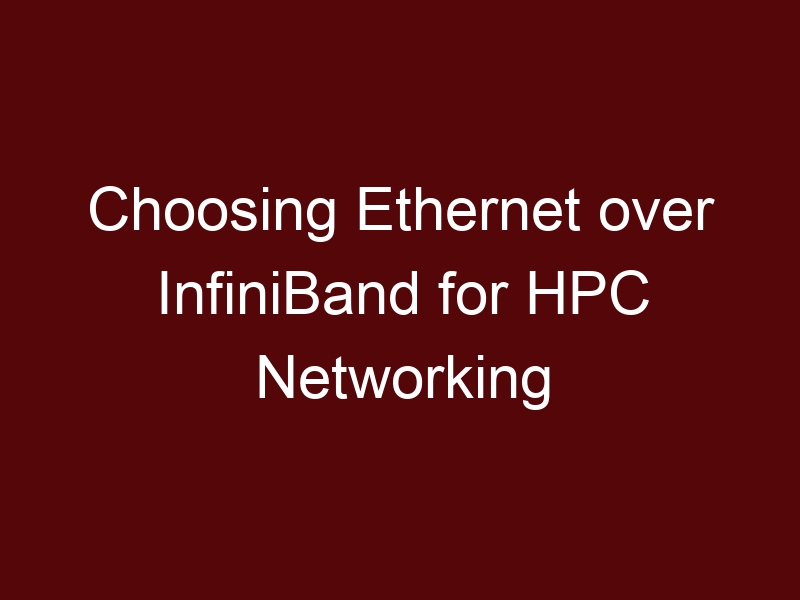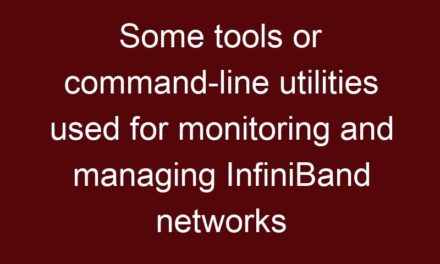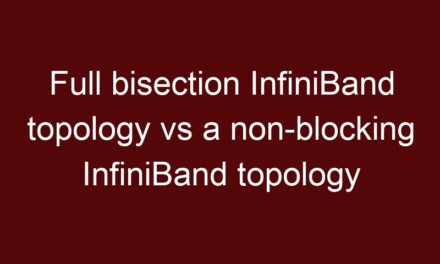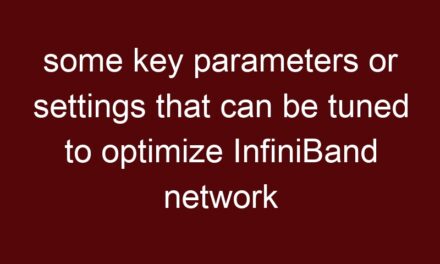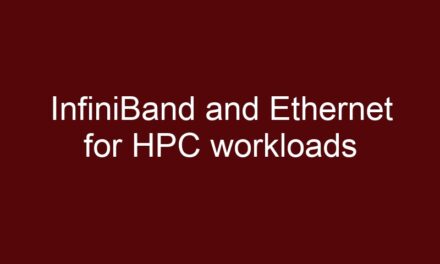The decision to choose Ethernet or InfiniBand for an HPC environment depends on several factors, including the specific requirements of the workload, budget considerations, scalability needs, and existing infrastructure. Here are some circumstances under which you might choose one technology over the other:
Choosing Ethernet:
- Budget Constraints: Ethernet hardware and components tend to be more cost-effective than InfiniBand. If budget constraints are a major concern, Ethernet might be the more practical choice.
- General-Purpose Networking: If the HPC environment needs to serve general networking needs alongside HPC workloads, Ethernet’s versatility and wide adoption across various industries make it a natural choice.
- Scalability and Future Expansion: If the HPC cluster is part of a larger data center infrastructure with diverse workloads, Ethernet’s scalability and broader ecosystem can facilitate seamless integration and growth.
- Application Diversity: If the cluster supports a mix of HPC and non-HPC applications, Ethernet’s compatibility with a wide range of protocols can be advantageous.
- Interoperability: If the cluster needs to communicate with external systems, Ethernet’s ubiquity ensures that it can easily connect to other networks and services.
Choosing InfiniBand:
- High Performance and Low Latency: For data-intensive and latency-sensitive HPC applications, InfiniBand’s high bandwidth and low latency make it an ideal choice to ensure optimal performance.
- Message Passing Interface (MPI) Applications: InfiniBand’s low-latency and high-bandwidth characteristics significantly improve the performance of MPI-based applications, which are common in HPC.
- Large-Scale Parallelism: If the cluster is used for large-scale simulations or parallel processing, InfiniBand’s efficient point-to-point communication can enhance scalability.
- Resource-Intensive Workloads: InfiniBand is particularly beneficial for workloads that require extensive data transfers, such as data analytics, scientific simulations, and machine learning.
- Cluster Isolation: InfiniBand’s ability to create isolated partitions can be useful for segregating workloads or providing enhanced security for specific applications.
- RDMA-Dependent Applications: Applications that take advantage of Remote Direct Memory Access (RDMA) for efficient data transfers benefit from InfiniBand’s support for this technology.
- Low Network Overhead: InfiniBand’s reduced overhead compared to Ethernet can lead to better CPU utilization and more efficient communication.
In general, the decision between Ethernet and InfiniBand involves weighing factors like performance requirements, budget constraints, compatibility with existing infrastructure, and the nature of the applications being run. Some organizations might even choose to implement both technologies in a hybrid setup to cater to different types of workloads within the same HPC environment.

